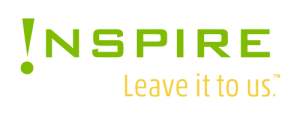Everyone knows what sales is, right? It’s the guy in the hard hat calling on office buildings, right? Not so fast. Inside sales is different.
It’s not what most people think it is. So, here are 10 differences between inside and outside sales so you can decide whether inside or outside sales would be the best place to have a job at your next company.
What is Inside Sales?

Inside sales is a term used to describe a sales model that is focused on selling via telephone and email rather than door-to-door or in-person. It’s a sales environment that is entirely office-based. Inside sales can be a great way to start your sales career, especially if you’re looking to break into the industry but don’t have a lot of experience.
Sales experience is not required to become an inside sales rep, but it helps to have some kind of sales experience, whether it’s in a specific industry or as a customer service rep.
Companies that use inside sales models are generally smaller companies that are looking to grow their sales team or are new to sales. Many times, these are start-up companies that are trying to expand their reach.
What is Outside Sales?

Outside sales is pretty simple: it’s sales that take place outside of the office. It’s the sales reps who make the rounds to meet their clients in person, like your local salesperson who comes by to ask you to buy a new computer.
The sales reps who sell to businesses generally make their rounds by car, while sales to consumers are often done by foot or public transit. For salespeople, sales is about building relationships with your customers. Sales reps are often the first point of contact for customers, so it’s important to get to know them and to get to know what they want.
Sales is also about building relationships with your potential customers. The reps get to know their territory very well, so they get to know the businesses in the area and who to talk to about buying.
What is the Difference Between Inbound and Outbound Sales?

What is the difference between inbound and outbound sales? The biggest difference between these two types of sales is that inbound sales focuses on engaging the customer while outbound sales focuses on reaching out to the customer.
Inbound sales has been around for a while and is also known as pull marketing , which is the idea of marketing to the customer based on what they want.
Outbound sales, or push marketing , is when the seller goes out and actively seeks new customers. This may seem like a simple definition, but there is a lot of nuance and detail around this topic.
The 11 Pros and Cons
Inside Sales Pros

You don’t have to commute and travel to different places a lot
You can work from home, so you won’t be wasting your time on commuting or if there is an emergency at work.
You’re in a more comfortable environment
You will get into a rhythm quickly as you are in the same surroundings day in and day out, usually. You can sit at your favorite chair or use your favorite pen instead on going to tons of different places as you would with outside sales. This could enhance your work experience.
Great way to get your foot in the door with sales
Think of it like a starting position to learn about the job and what sales are all about. When and if you decide to go into outside sales, it will be easier for you to start because you already pretty much know how to do it.
Inside Sales Cons

You’re usually limited to your desk.
This means that you may not always feel as though you’re getting out and meeting people.
If you want to make money fast, then this isn’t really going to help you. It’s also hard to build relationships when you are working alone most of the day.
You don’t get to meet and talk to a variety of people.
People tend to stick to their own team members so you won’t really talk to many other people because the job simply doesn’t require it. A lot of the selling you will do is virtual – whether that be through emails or phone – so you won’t actually see the customer often.
Outside Sales Pros

Be Your Own Boss
Working hours tend to be flexible. If you want to go out for lunch or get dinner after working hours, that’s fine too! You just need to make sure that you take care of business before going back to your desk.
You Often Get Paid More
If you have a background in outside sales, you can expect to earn a base salary plus commission, or a salary plus a performance bonus. In some cases, you get a base salary plus commission plus a performance bonus. In general, it’s a more lucrative offer than inside sales jobs. Outside sales jobs also tend to pay more in the early years of your career.
Can Work Your Own Hours and Scehdules
You can work from home, from a beach or from a café. It is a career where you take your lunch break whenever you want, where you work when you want and where you get to choose your own hours.
Will Travel More
This could depend on where you live but most companies will require their reps to visit clients who aren’t close by them. So you’ll probably end up traveling more often than not. But hey, what else do you expect when selling? If you enjoy travelling, then all the better!
Outside Sales Cons

Require Certain Skills and A LOT of Self-Motivation.
It takes a special kind of person to sell anything in the outside sales position. Most people find this difficult and it requires a high level of confidence. To succeed at it, you must believe in yourself 100% and show no fear whatsoever during conversations.
Can Be Away From Home Often
Your days off will consist mostly of driving or flying around looking for leads or talking with your clients. Sometimes, depending on the company, you may be required to stay away from home overnight. This may bring you away from home, but the increase in money might be worth it.
Conclusion With Inside and Outside Sales
If you’re thinking about a career in sales or want to learn more about the difference between inside and outside sales, you’ve come to the right place. We hope you found this blog post interesting and informative. Thank you for reading!



